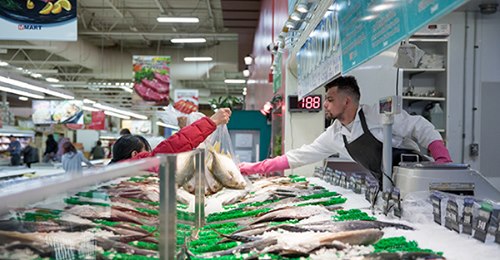AURORA | Members of Aurora’s Korean community have decided after years of mulling ideas that the best way to create a Korea Town in the state’s most diverse city is to do it virtually.
A logo and website will make Korean businesses easy to locate for anybody not familiar with the cluster of Korean-owned businesses primarily along the Havana Street corridor. A logo was finalized earlier this year, according to local Korean news source Colorado Times News.
A formal K-Committee — which included Aurora Sister Cities International, local business owners and community members — have been organizing the virtual town in an effort to gain more business from across the metro region.
“The main target audiences engage non-Koreans across the Front Range – especially ages 18-40, foodies, culturally curious, inclusive of young singles to families to business professionals, Koreans out-of-state or abroad who wish to visit Aurora as visitors, investors, or people looking to relocate and Koreans in Aurora,” the newspaper wrote.
According to the city’s 2016 demographic report, Koreans make up the third largest immigrant group in Aurora with nearly 2,300 residents. Dozens of businesses owned by Korean-Americans thrive across the city.
“This is the only place in Colorado that concentrates this many Korean businesses,” local insurance agent Peter Lee, who originally hails from Seoul, previously told the Sentinel about highlighting Korean businesses in Aurora. “Everybody thinks they have to go to Denver for culture, and that just isn’t the case.”
Lee also sat on the K-Committee.
City lawmakers are set to recognize the work of the virtual Korea Town at a future city council meeting, according to Aurora City Councilmember Dave Gruber, who became an advocate for some kind of designation even before being elected to the Aurora City Council in 2018.
He said during a city meeting this week early talks about a Korea Town left many wondering where the borders would be with so many other immigrant businesses along the Havana Street corridor.
Ethiopian restaurants, taco shops, car dealerships and fast food chains all mingle with boba shops, Korean-owned grocery stores and restaurants on the strip.
“The next step on this, of course, is for other communities to take what the Korean community has done and then build their own, so we could have different towns within Aurora and allow us to celebrate the diversity and allow us to point people to whatever type of cuisine, whatever type of store they want to experience within the city,” Gruber said.
Organizers of the effort have not yet announced a launch of virtual Korea Town

